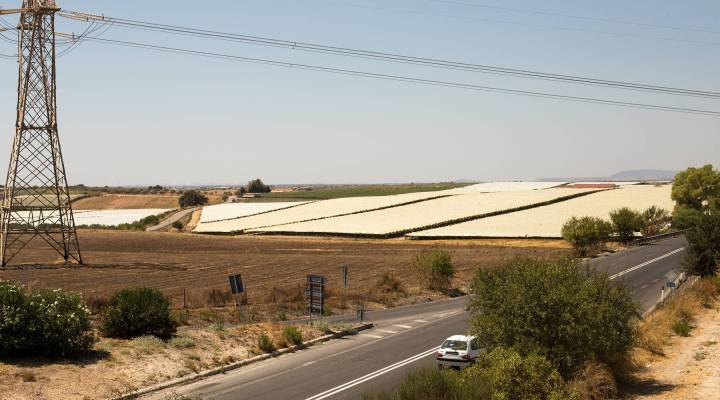
Agricultural workers in Sicily say the job is strenuous, the days are long and the wages are declining
Agricultural workers in Sicily say the job is strenuous, the days are long and the wages are declining

Italy is one of the largest growers and exporters of fruits and vegetables in Europe. According to the European Commission, the Mediterranean country exported 38 billion euros worth of agricultural products – or about $44 billion – in 2016. But the Italian agricultural sector has a dark past – a history of exploiting its workers, who are mostly immigrants. And academics studying labor exploitation say workers’ wages are getting even lower.
Rows and rows of greenhouses line the Sicilian countryside. Some of them are empty, others look abandoned, but many are growing tomatoes, grapes and even flowers under the hot sun.
Yaya Diallo, an asylum seeker from Guinea, knows these fields well. After arriving in Sicily in 2012, he sought work in the agricultural fields outside the southeast city of Vittoria, in the fertile region of Ragusa. The 10-hour workdays were strenuous, and he said the wages – 20 euros a day, lower than the Italian minimum wage of 56 euros – went mostly unpaid.
“They cannot give you time to rest, so we would go and work full day,” said Diallo.
Diallo said the farmer eventually paid half of the 608 euros he owed – and the refugee center where he lives reimbursed him for the rest. He now works there as a translator, full time and with a contract. But social worker Chiara Pitti said Diallo’s story is just one of many. On top of wage issues, she said workers have no legal protection.
“So if they get injured or something, nobody looks after them,” said Pitti.
Exploitation of workers in Sicilian greenhouses is nothing new. Since the 1980s, various waves of immigrants have worked the fields: from Tunisian men to Romanian women to, now, West African asylum seekers. A 2012 Amnesty International report found that agriculture workers in Italy are often victims of severe labor exploitation. And academics who study labor issues say daily wages have gone from 40 euros in the past to as low as 15 euros today.
“In all the world where we have some good people, we have also the bad people,” said Francisco Ferreri, president of a farmers union in Sicily, and a wine producer himself. He said the Italian government should crack down more on exploitation. “I hope that government, the police, control more all the farm,” he said.
In June, an investigation into labor issues led to the arrest of two farmers. Yet the problem persists – in Vittoria, asylum seekers go to the main square every day to be selected for farm work. Contracts are rare and the days are long, but it’s the workers’ need for money that makes it hard to turn down the job.
| Amid Trump’s immigration crackdown, farmers look for reform |
| In Italy, youth unemployment hovers around 35 percent |
There’s a lot happening in the world. Through it all, Marketplace is here for you.
You rely on Marketplace to break down the world’s events and tell you how it affects you in a fact-based, approachable way. We rely on your financial support to keep making that possible.
Your donation today powers the independent journalism that you rely on. For just $5/month, you can help sustain Marketplace so we can keep reporting on the things that matter to you.












